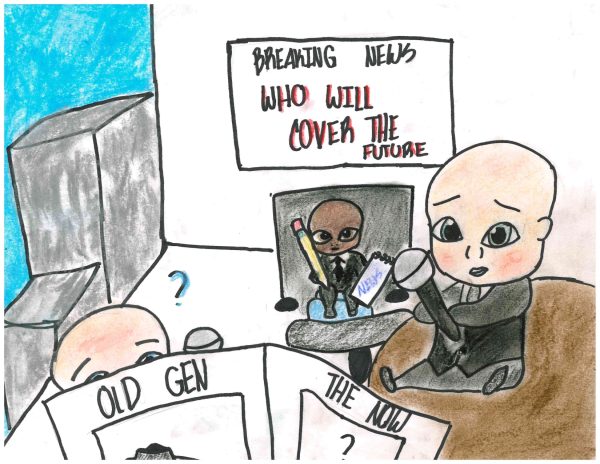Perpetuating myths like ‘Freshman 15’ increases dangerous eating habits
College is a stressful time for many incoming students. On top of keeping up with grades and socializing, many students worry about their physical appearance.
Starting from the application process to the first initial move-in day, the beginning college experience in conjunction with COVID-19 looks very different.
However, the ‘Freshman 15’ phenomenon is even more prevalent.
The ‘Freshman 15’ refers to the idea that a freshman entering college will experience an extreme increase in their weight.
Although it is true that people entering college might gain weight, it’s usually not nearly as dramatic as 15 pounds.
According to a study done by the National Center for Biotechnology Information in 2011, a freshman in college will gain on average 3.2 pounds, while other sources say average weight gain can be anywhere from two to five pounds.
According to The University of Texas at Austin University Health Services, slight weight gain at the college age is normal.
Fighting this shift in weight can further lead to health problems, such as disordered eating.
Accelerated or unexplained weight gain during this time can be a result of many different factors.
Some include skipping breakfast, erratic sleep/eating patterns, excessive alcohol consumption, and decreasing activity level compared to high school.
However, the influences on diet culture due to COVID-19 may have serious impacts on this statistic.
People’s relationships with food have been challenged by the pandemic, which has heightened concerns about health and fitness.
Many of us have found food to be a source of much-needed consolation, especially when we’ve been isolated at home.
Gaining weight throughout the pandemic has coined the term ‘Quarantine 15’. This increase in consuming comfort foods has also initiated a guilt and shame association with eating.
Others have developed disordered eating and exercise habits as a result of the tensions and events of the last year.
The National Eating Disorder Association saw a 78% increase in helpline contacts at the start of the pandemic.
Fears of attaining the ‘quarantine 15’, coupled with social isolation, have fueled an increase in severe eating disorders, particularly among teens.
Amidst these varying opinions surrounding food and fitness, a generation of young people are off to college this autumn with overwhelming anxiety of gaining weight – the infamous freshman 15.
By normalizing a culture that villainizes weight gain and idolizes weight loss, it’s not surprising that there has been a steady increase in eating disorders.
The dieting industry is extremely lucrative. They benefit from an individual’s insecurities, therefore they want to promote catchy slogans that convey disappointment in gaining weight.
On the flip side, wanting to lose weight is not bad. Following unhealthy eating patterns to do so is bad.
An individual’s body is subject to weight fluctuating at various stages of life.
Even positive circumstances can be stressors and our bodies may change as our surrounding environment does.
The inability to control their body may make individuals want to control their weight through dieting.
However, research shows that a majority of people engaged in restrictive diets end up regaining the initial weight they lost, some even gaining more.
According to the American Psychological Association, “calorie deprivation leads to changes in hormones, metabolism, and cognitive/attentional functions that make it difficult to enact the behaviors needed to keep weight off.”
The ‘Freshman 15’ myth is not a concept unique to The United States.
Other countries, such as Australia and New Zealand call it ‘First year fatties’ or ‘Fresher spread’.
According to the National Eating Disorders Collaboration, people ages 12 to 25 are at high risk to develop an eating disorder.
On top of that, college students must worry about grades, money, relationships and various other outside influences.
The concept of ‘Freshman 15’ is not new.
According to the Wiley Online Library, the earliest scientific mention of weight gained during an individual’s first year of college was made in the journal Addictive Behaviors in 1985.
The first popular culture reference to the term ‘Freshman 15’ was in a 1989 article published in Seventeen magazine.
The increase in concern about health throughout the pandemic has only heightened the concern of gaining weight.
The prolonging myth of ‘Freshman 15’, and other catchy phrases that promote fat-phobia, further surge unhealthy and dangerous eating habits.






